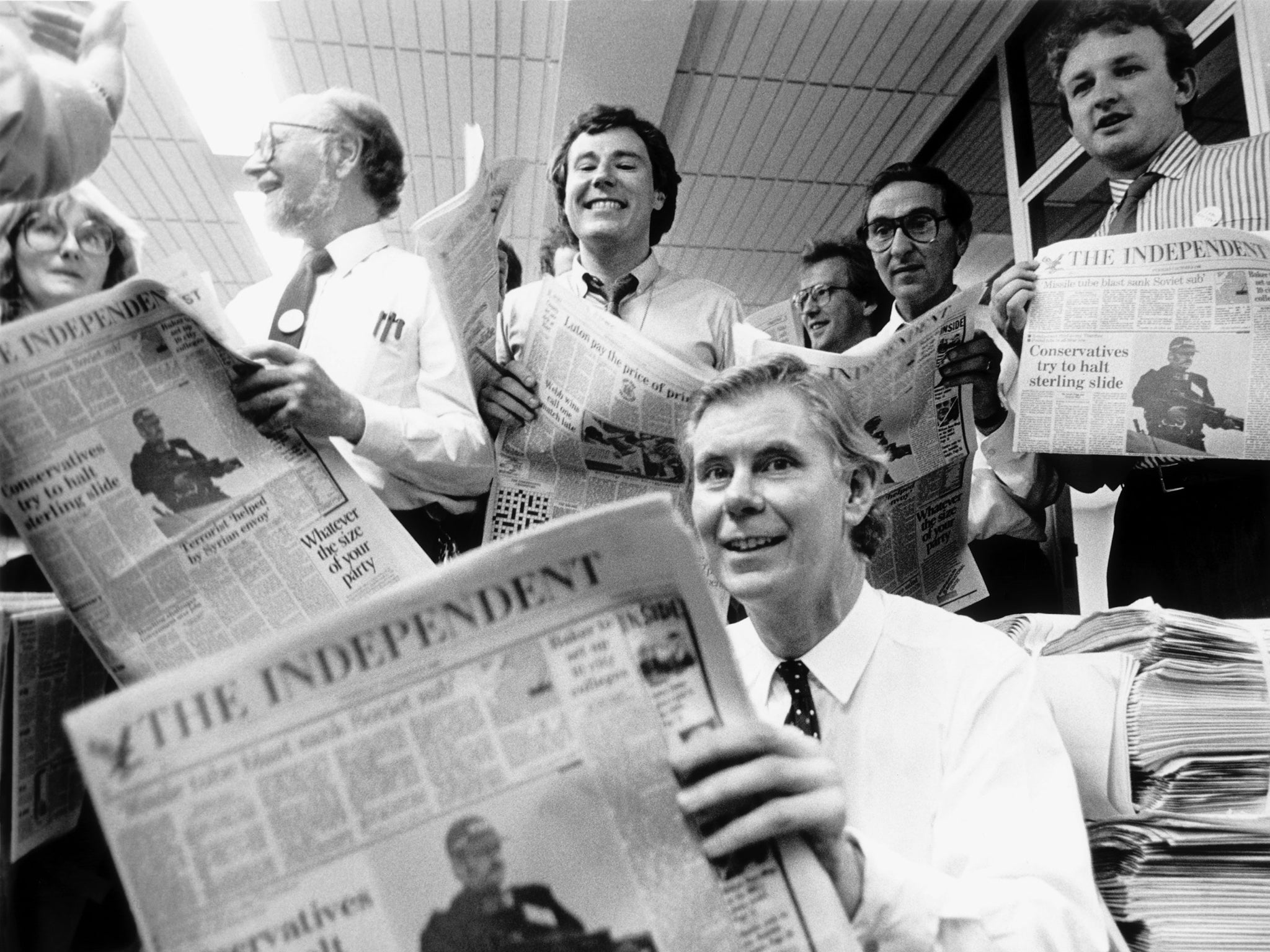A moment in time that gave us The Independent

If The Independent was the answer when it was launched on 7 October 1986, thirty years ago today, what was the question? Or, more precisely, what were the questions?
Back then Fleet Street, with printing presses thumping away down side streets and the pubs full of journalists, gave no sign that third party politics had arrived. The Times, the Telegraph, the Daily Mail and the Sun unswervingly supported the Conservative Party. The Guardian and the Daily Mirror were likewise totally loyal to the Labour Party.
For more from The Independent's 30 year archive, follow this link
Fleet Street had failed to notice that in March 1981, four senior Labour figures, Roy Jenkins, David Owen, Bill Rodgers and Shirley Williams, the ‘Gang of Four’, left the party and founded a new centrist grouping, the Social Democratic Party (SDP). In 1988, when The Independent was two years old, the SDP merged with the old, historic Liberal Party to form what became the Liberal Democrats. Third party politics had arrived and became a permanent feature of British politics.
This meant that the political leanings of newspaper readers were likely to be more variable than had hitherto been assumed. So a mix of opinions would be a necessity. Thus we had William Rees-Mogg writing for us, a former editor of The Times, whose opinions were more to the right than to the left at the same time as Peter Jenkins, who had been a policy editor and political commentator of The Guardian for eleven years.
We weren’t, however, going to be standard bearers for the Lib Dems. From the beginning we declined to maintain permanent allegiance with any political party. That tradition, I am glad to say, persists.
The second question concerned our ownership. What difference would it make that, unlike all other national newspapers, when we launched no press baron was involved? The publishing company was owned by thirty financial institutions, insurance companies, pension funds, venture capital specialists and the like. No single holder owned more than a small percentage of the shares.
This structure lasted until 1993 when, one fateful day, Rupert Murdoch substantially reduced the cover price of The Times, which The Independent was outselling at the time. This posed a terrible financial strain that we were unable to sustain without seeking additional capital. As a result, new shareholders came in to replace the financial institutions. Since 2010, the Russian businessman Alexander Lebedev and his son, Evgeny, who is based in London, have owned the Independent titles.
Some may find the answer to the second question surprising. For the truth is that all The Independent’s owners without exception have been excellent. In no case have they ever tried to influence the editorial output.
The final question to be answered was very different and, in the event, much more profound. What use would we make of the new digital technology that Fleet Street’s trade unions had adamantly refused to accept but which newspapers all over the world were beginning to adopt? Fortunately, because we were able to use printing plants outside London, we could benefit. But never for one moment did we understand that these new computers, which allowed us swiftly and efficiently to edit and design pages on screen, were merely the opening stages of a technological revolution that would be followed in short order by the Internet, the mobile phone and Facebook. What we had welcomed with such enthusiasm in 1986 finally killed off the print edition.
Nonetheless, we accepted the old injunction – if you cannot beat them, join them. That is why you are reading these words online or on the iPad edition. This is emphatically not a defeat but a new and interesting challenge, as the editor, Christian Broughton, explains on the final page of this supplement.
Subscribe to Independent Premium to bookmark this article
Want to bookmark your favourite articles and stories to read or reference later? Start your Independent Premium subscription today.

Join our commenting forum
Join thought-provoking conversations, follow other Independent readers and see their replies